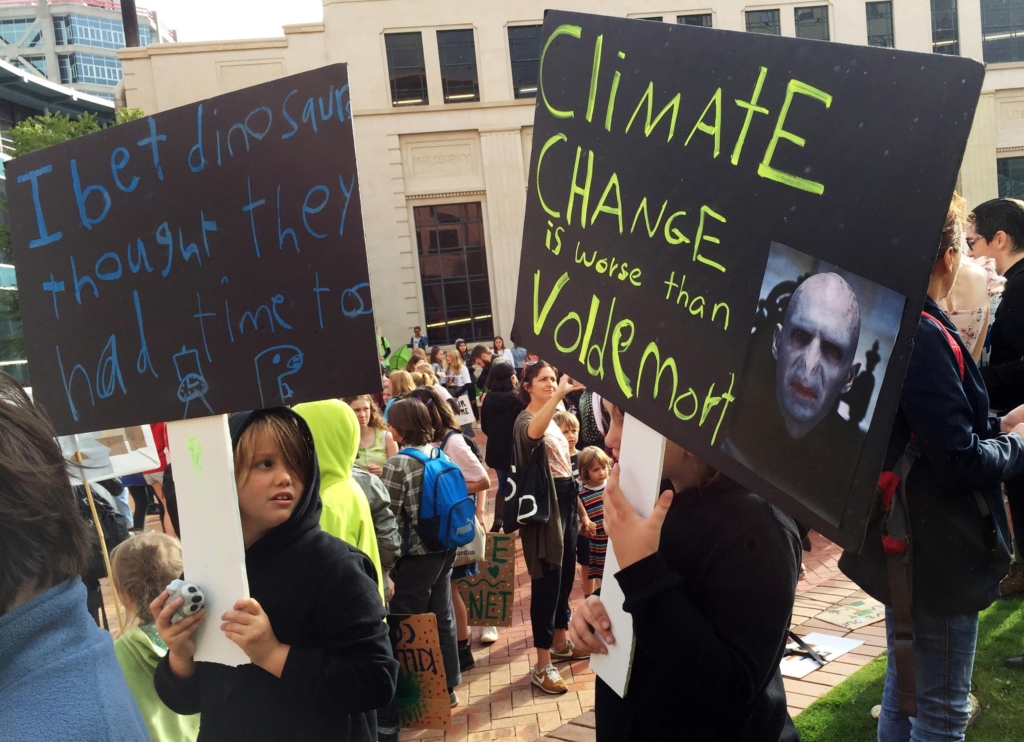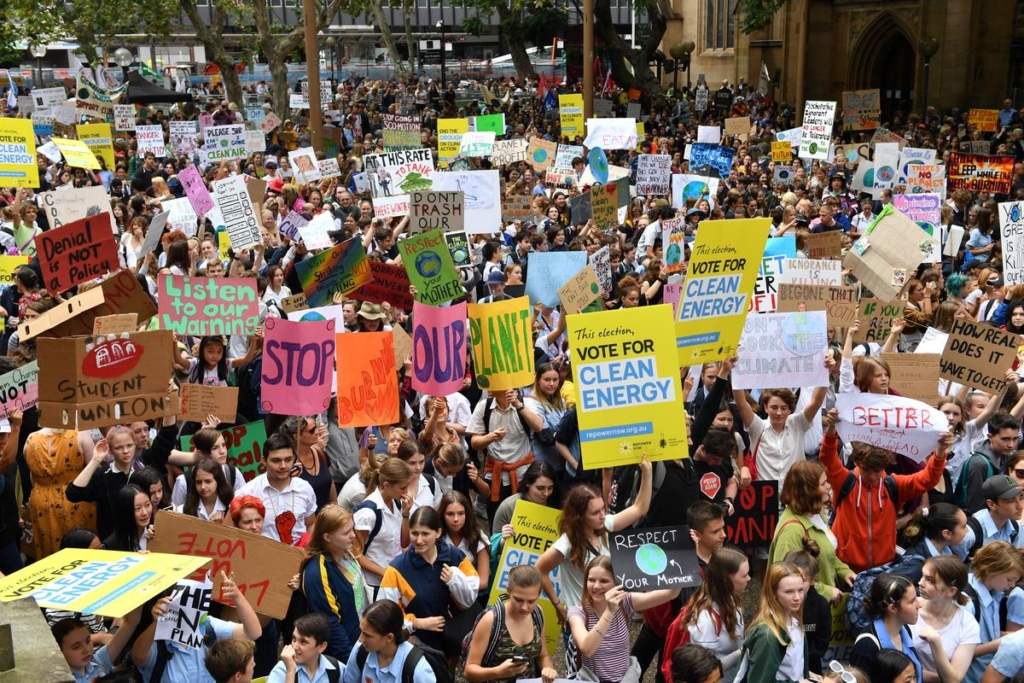The terror of climate change is transforming young people’s identity

By Blanche Verlie
14 March 2019
(The Conversation) – Today, at least 50 rallies planned across Australia are expected to draw thousands of students who are walking out of school to protest climate change inaction.
These Australian students join children from over 82 countries who are striking to highlight systemic failure to address climate change.
But the strikes represent more than frustration and resistance. They are evidence of an even bigger process of transformation. My research investigates how young people’s sense of self, identity, and existence is being fundamentally altered by climate change.
Canaries in the coalmine
Striking children are experiencing “existential whiplash”, caught between two forces. One is a dominant culture driven by fossil fuel consumption that emphasises individual success, encapsulated by Resources Minister Matt Canavan’s remarks that striking students will never get a “real job”:
The best thing you’ll learn about going to a protest is how to join the dole queue. Because that’s what your future life will look like […] not actually taking charge for your life and getting a real job.
Australia Resources Minister Matt Canavan
On the other hand is the mounting evidence that climate change will make parts of the planet inhospitable to human (and other) life, and fundamentally change our way of life in the future.
Children are up to date with the facts: The Earth is currently experiencing its 6th mass extinction; Australia has just had its hottest summer on record; and experts warn we have just 11 years left to ensure we avoid the misery of exceeding 1.5 degrees of planetary warming.
Meanwhile many Australian adults have been living what sociologist Kari Norgaard terms a “double reality”: explicitly acknowledging that climate change is real, while continuing to live as though it is not. But as climatic changes intensify and interrupt our business-as-usual lifestyles, many more Australians are likely to experience the climate trauma that school strikers are grappling with. […]

A sign of the times
Striking students are calling out that simply standing by means being complicit in climate change. The school strikers, and those who support them, are deeply anguished about what a business-as-usual future might hold for them and others.
Striking students’ signs proclaim “no graduation on a dead planet” and “we won’t die of old age, we will die from climate change”. This is not hyperbole but a genuine engagement with what climate change means for their lives, as well as their deaths. [more]
The terror of climate change is transforming young people’s identity
Not nice to scare children, you will freeze them and then they will not be able to respond.
But they are responding! Today, on 15 March 2019, they’re rising up globally, trying to get adults to treat the climate crisis as a crisis.
What are the adults going to do? It’s too late to fix it.